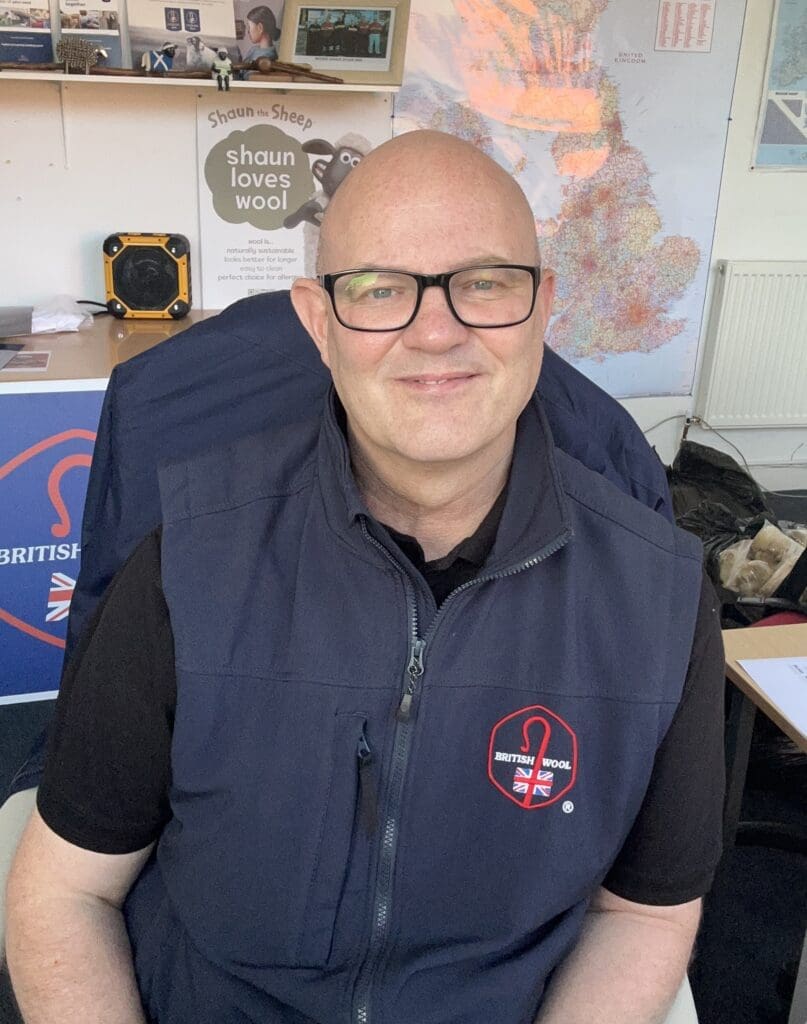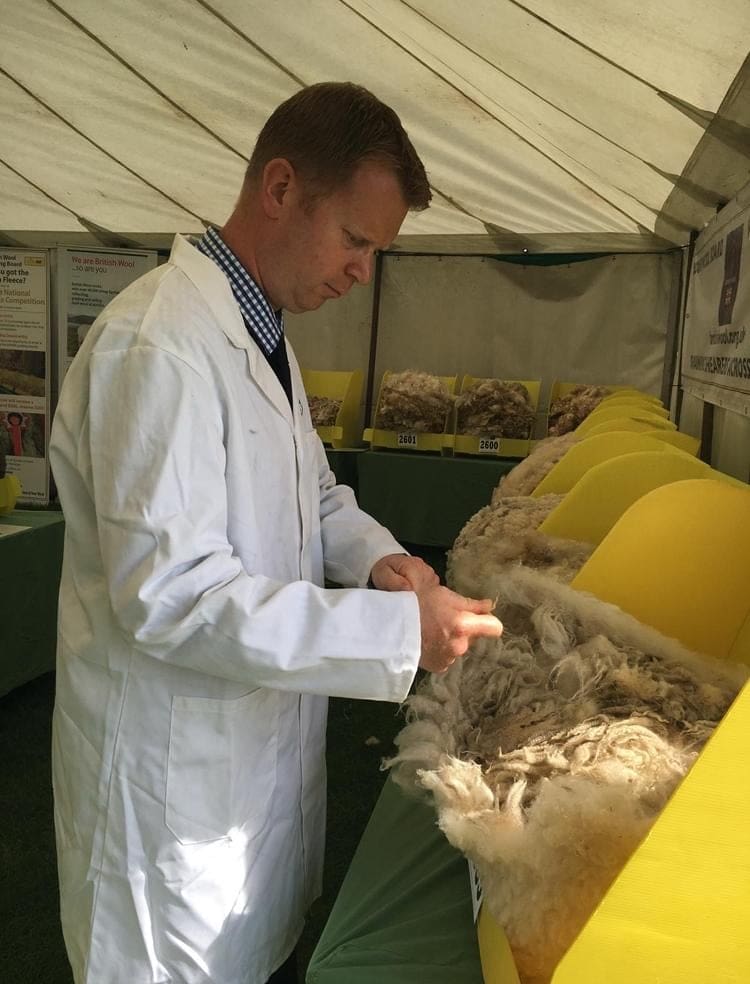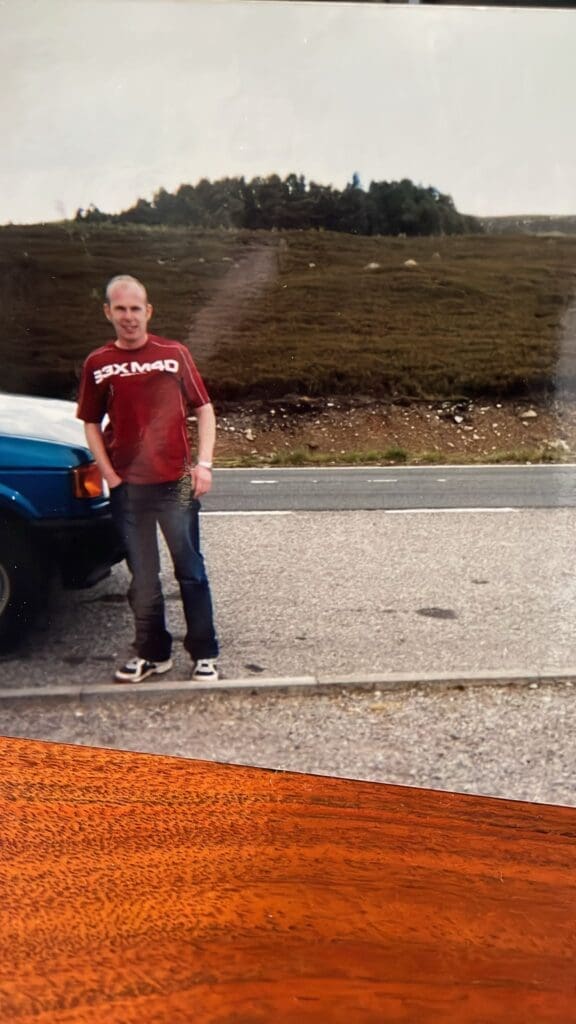As part of British Wool’s 75th Anniversary, we caught up with the Depot Operations team, Billy Hewitson, Head of Operations, Colin Jarvis, Area & QHSE Manager, and David Swinton, Area Manager. Collectively, Billy, Colin, and David have worked over 100 years in the wool sector.
Firstly, introduce yourselves to us:
Billy:
I’m from Paisley in Renfrewshire and have worked for British Wool for 40 years. I started working for Scottish, English, and Welsh Wool Growers in 1985 at the main depot in Paisley.
Colin:
I grew up in a small village just outside Stamford. I first started in the wool industry in 1990 at Central Wool Growers (CWG), an independent grading depot, as a seasonal temporary worker. I was only planning on staying for a couple of months before starting college, but soon realised how much I enjoyed the business and was interested in pursuing it further.
After working through the first busy summer season, I was offered a 5-year trainee Grader apprenticeship, which I gladly accepted. I had grown up with the agricultural industry, my father working on Arable farms all his life, and before that, my grandfather was a shepherd in Norfolk. I feel I was always destined for a career in agriculture!
David:
I was brought up and spent all my life in the Tweed Valley. I lived on a farm up to the age of 12 and then moved to the local mill town of Innerleithen. My family has a Fencing Contracting business in the area, which gives me a good knowledge of how farming works and the challenges involved.
When did you join British Wool?
Billy:
I started working in 1985 at the main depot in Paisley. We then moved to Hillington in Glasgow in 1986, where I performed every job at the depot, from sweeping the floor, intake, packing, and grading. We were taken over by the British Wool Marketing Board in the mid-1990s and moved to Irvine in the early 2000’s where I progressed to head grader. I then moved on to depot supervisor and depot manager, a short time later.
Colin:
I was with CWG for 31 years until 2021, when it closed as part of the British Wool restructure. After completing my apprenticeship, I worked as a grader until 2003, when I was promoted to Head Grader. From 2013, I co-managed the depot until its closure. In 2021, I joined British Wool as a Quality Control Manager for Southern England & Wales, which gave me responsibility for overseeing the grading and technical standards at our depots. It had always been an ambition of mine to reach this position.
David:
I started my British Wool career on my 16th birthday in May 1984 on a 4-year apprenticeship at Stewart & Ramsden in Galashiels (part of the British Wool group) Following qualification, I then spent the next 18 years as a wool grader not only in Galashiels but also working at the Carlisle and Irvine grading depots and Ulster Wool in the late 90s and early 2000s.
I then became Assistant Manager at Galashiels in 2006, and then Depot Manager between 2009 – 2017. I also managed the wool sorting side of the business. I have done 41 years of service to British Wool.
What did the role of being a Depot Manager entail? Describe a typical week in the role.
Colin:
My role was very hands-on, I was still part of the grading team while also managing the day-to-day warehouse operation. Over the years, I did all the different jobs in the warehouse, which helped in managing the staff. I was also involved in recruiting and managing the staff and ensuring we were working to British Wool’s grading and quality standards.
David:
A typical week as a manager is organising the workflow for the grading team, making sure the wool is also managed into the depot during the busy summer months. Galashiels was the biggest depot in Scotland, and we managed the intake of wool from Northumberland, South Scotland, Fife, and Perthshire. I loved the challenge of always getting as much wool to the door, which could be as much as 1,000 sheets per day during the peak of July and August.
Tell us more about the role you are currently in and what this entails.
Billy:
As the years progressed and different management took over British Wool, my job changed. Firstly, I took on the role of Wool Sales and Quality Control for the UK and Northern Ireland. After a couple of years, in 2021, I took on my current role of Head of Operations, where I oversee the depot network, purchase our consumable stock, deal with any day-to-day issues at our sites, amongst other jobs!
Colin:
I am still involved in ensuring our quality standards are being met and ensuring our trainee graders are meeting our requirements. My role has moved into managing Operational activities across the network with Billy & David. I also work with our depots to ensure we are meeting our own Health & Safety requirements, adhering to our legal obligations, whilst also looking at new ways to update and streamline our processes.
David:
My current role is as Area Manager for Scotland, Northern Ireland, and Northern England.
My current role is varied, from Quality Control visits to depots and trainee grader monitoring, which is every 6 months. I also manage the UK collection centre network and am currently focused on finding new sites across the UK. My role can go from office work to hands-on, such as driving an FLT, to sometimes grading wool.
We are a small team covering the UK, so never stuck for a job to do!
Do you have an anecdote or experience to share from your time at British Wool?
Billy:
A funny story from my time as a depot manager, the depot was broken into early one morning, as the key holder and manager, I was called out. Once I arrived, there were police everywhere, and I asked to go into the depot to see if there was any damage. The police said I couldn’t go in as there may still be someone inside and they were waiting on the police dogs turning up. The police dogs arrived and duly searched the building and found no one on site. The police officer then asked if they could perform a 15-minute training session with the dog in the depot due to all the wool and agricultural smell of the depot, they wanted to hide in a skep of wool, cover themselves with wool, and let the dog try and find them, to which I agreed. After 15 mins of training, the police officer came out of the depot with dog, the officer was covered head to toe with wool. She must have chosen a skep of the hairiest, most kempy blackface I had at the depot. The dog did find her; she went away happy and rather woolly!
Colin:
A few months ago, I was offered the opportunity to appear on BBC’s Countryfile, the episode was centred around Bradford and the part it has played in the wool industry over the years. It was fantastic to be involved in, and Sean Fletcher and the Countryfile team made it a great experience. It took me out of my comfort zone, but sometimes you need that!
David:
I can’t think of anything but having a good sense of humour and being a team player goes a long way.
As we celebrate 75 years, how important is British Wool and the collective marketing of wool in the UK today?
Billy:
One of the greatest steps forward that I have seen in 40 years is the addition of our traceable system. This allows us to trace every member’s wool straight through our intake, grading, and packing system, and then allows the sales team to auction the wool as traceable, which generates a better return for our members.
75 years of British Wool is a fantastic achievement; British Wool plays a vital role in ensuring UK sheep farmers receive a fair return for their fleece. By operating a collective marketing system, it grades, packs into bales of the same type of wool, and sells wool on behalf of its members. This not only guarantees quality for buyers but gives members a better return and guaranteed payment than they may achieve elsewhere.
Colin:
I feel the role British Wool plays in the agricultural sector is as important as it was 35 years ago when I joined the industry, providing a reliable service whilst offering greater flexibility in how farmers can get their wool into us is vital. The grading process remains largely the same over the years, but it remains a key part of ensuring consistency and instilling confidence for the onward supply chain.
David:
The British Wool auction system is the driving force, and as sheep numbers decrease in the UK, this will only increase demand and give confidence to farmers that British Wool works for them.






